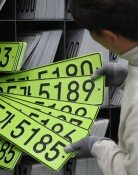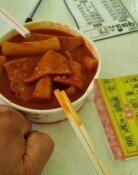Korean Wave
Since the Chinese government does not allow foreign television programs to be aired during prime time, Korean soap operas cannot be telecasted when most people watch TV.
Video Land, a Taiwanese broadcasting company, reduced the airtime of Korean soap operas by more than half, from 811 hours in 2003 to 356 in 2004.
A report titled Maintaining the Korean Wave and Corporate Application released by the Samsung Economic Research Institute (SERI) said Taiwan decided to impose a 20 percent increase on tariffs on Korean products starting next year while complaining of the increased inflow of Korean TV drama programs and their high prices.
In Hong Kong, the country imported less Korean movies, TV programs, and records, which are major export items of popular Korean culture, by 15.3 percent compared to 2002 when the Korean Wave reached its peak.
In Japan, once the most ardent fan of Korean culture, some are finding faults with Korean actors and actresses and analysts predict the future of the Korean Wave gloomily by calling it Hallyu, which means a cold current.
A famous Japanese movie director, Takeshi Kitano, slandered Korean TV by saying, Korean actors and actresses undergo too many cosmetic surgeries and Korean TV dramas suck.
In a telephone interview with Dong-A Ilbo, 50-year-old Kim Yong-hee, who runs NBS, a company which imports Japanese movies and TV programs, said, Korean programs in Japan with viewing rates of three to five percent are being forced out of prime time showing, predicting that the Korean Wave is not likely to last beyond this year.
SERIs senior researcher Ko Jung-min observed that in order to overcome the anti-Korean Wave, this is high time to upgrade Korean cultural products and to expand the genres of the Korean Wave beyond just popular dance music and TV soap operas.
To find out ways of overriding the challenge, the Ministry of Culture and Tourism announced that it will make a Korea brand with six core disciplines: Korean language, traditional costume (Hanbok), Korean food, Korean-style houses, Korean paper and Koreanology, which include Korean spirit and lifestyle, by establishing the Korea Brand Strategy Committee with the prime minister as commissioner.
Sue-JeanKang Seung-JaeLee sjkang@donga.com sjda@donga.com
Headline News
- N. Korea launches cyberattacks on S. Korea's defense companies
- Major university hospital professors consider a day off each week
- Italy suffers from fiscal deficits from ‘Super Bonus’ scheme
- Inter Milan secures 20th Serie A title, surpassing AC Milan
- Ruling and opposition prioritize spending amid tax revenue shortfalls







